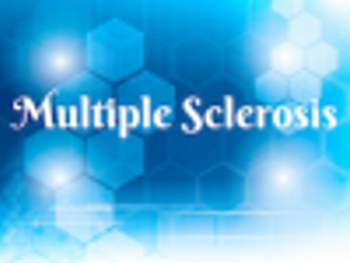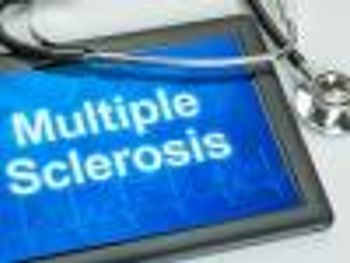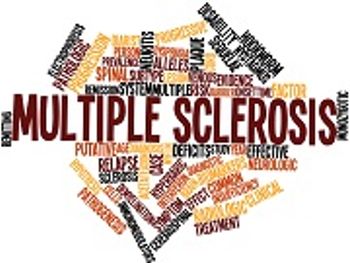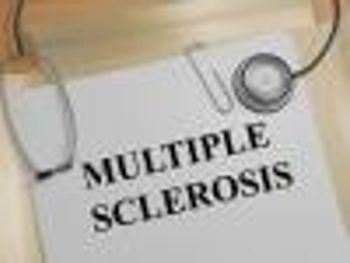
Cognitive impairment is present in up to 70% of patients with multiple sclerosis, but can be difficult to completely evaluate in routine clinical practice.

Cognitive impairment is present in up to 70% of patients with multiple sclerosis, but can be difficult to completely evaluate in routine clinical practice.

Research to explore whether intermittent fasting can improve symptoms in patients with relapsing-remitting multiple sclerosis.

Multiple sclerosis risk increased significantly in individuals with occupational exposure to organic solvents.

IncobotulinumtoxinA is the first and only neurotoxin approved for this indication in the United States.

Two recent studies examined the different effects and aspects of progressive multiple sclerosis.

Two recent clinical trials evaluated the efficacy of the drug ozanimod, an investigational drug for the treatment of relapsing multiple sclerosis.

A look at last week's top stories in the world of pharmacy.

This weekly video program provides our readers with an in-depth review of the latest news, product approvals, FDA rulings, and more. Our Week in Review is a can't miss for the busy pharmacy professional.

The findings highlight the role of Epstein-Barr virus (EBV) infection in multiple sclerosis pathogenesis and support therapies targeting EBV-infected immune cells.

Top news of the week from Specialty Pharmacy Times.

Researchers identified an epigenetic mechanism connected to a known genetic risk factor for multiple sclerosis.

Phase 3 data show that ocrelizumab (Ocrevus) may delay the progression of disability, such as the need for a wheelchair, in patients with primary progressive multiple sclerosis (PPMS).

Researchers investigated whether high body mass index is a risk factor not only for a greater risk of multiple sclerosis, but also for advancing to the secondary progressive stage of the disease.

Top news of the day from across the health care landscape

Researchers identified a primary mechanism of inflammatory demyelination in the central nervous system during multiple sclerosis, which may lead to new therapeutic approaches.

Researchers aimed to assess the relationship between fatigue in multiple sclerosis and inflammatory or other immunomediated markers.

A retrospective observational study was published in PLOS One that investigated the safety and efficacy of rituximab in patients with progressive MS (PMS) and relapsing-remitting MS (RRMS)

Ocrelizumab showed a sustained reduction in underlying disease activity and improved cognitive function in patients with relapsing multiple sclerosis.

Indazole chloride may be able to reduce disability burden in patients with multiple sclerosis by producing good inflammation that promotes axon myelination.

The results of a recent study provide important insights into what might influence the development of multiple sclerosis.

Officials with the FDA have approved fingolimod (Gilenya, Novartis) for the treatment of relapsing multiple sclerosis (MS) in pediatric patients aged 10 years and older.

Officials with the FDA have approved fingolimod (Gilenya, Novartis) for the treatment of relapsing multiple sclerosis in pediatric patients aged 10 years and older, making it the first FDA-approved drug to treat MS in this population.

Fingolimod (Gilenya, Novartis) is the first FDA-approved treatment to treat multiple sclerosis in pediatric patients.

Patients with relapsing MS who switched from interferon therapy to teriflunomide (Aubagio) experienced improvements in treatment satisfaction.

Study finds improving adherence to disease-modifying multiple sclerosis medications could reduce clinical relapses while saving on medical costs.